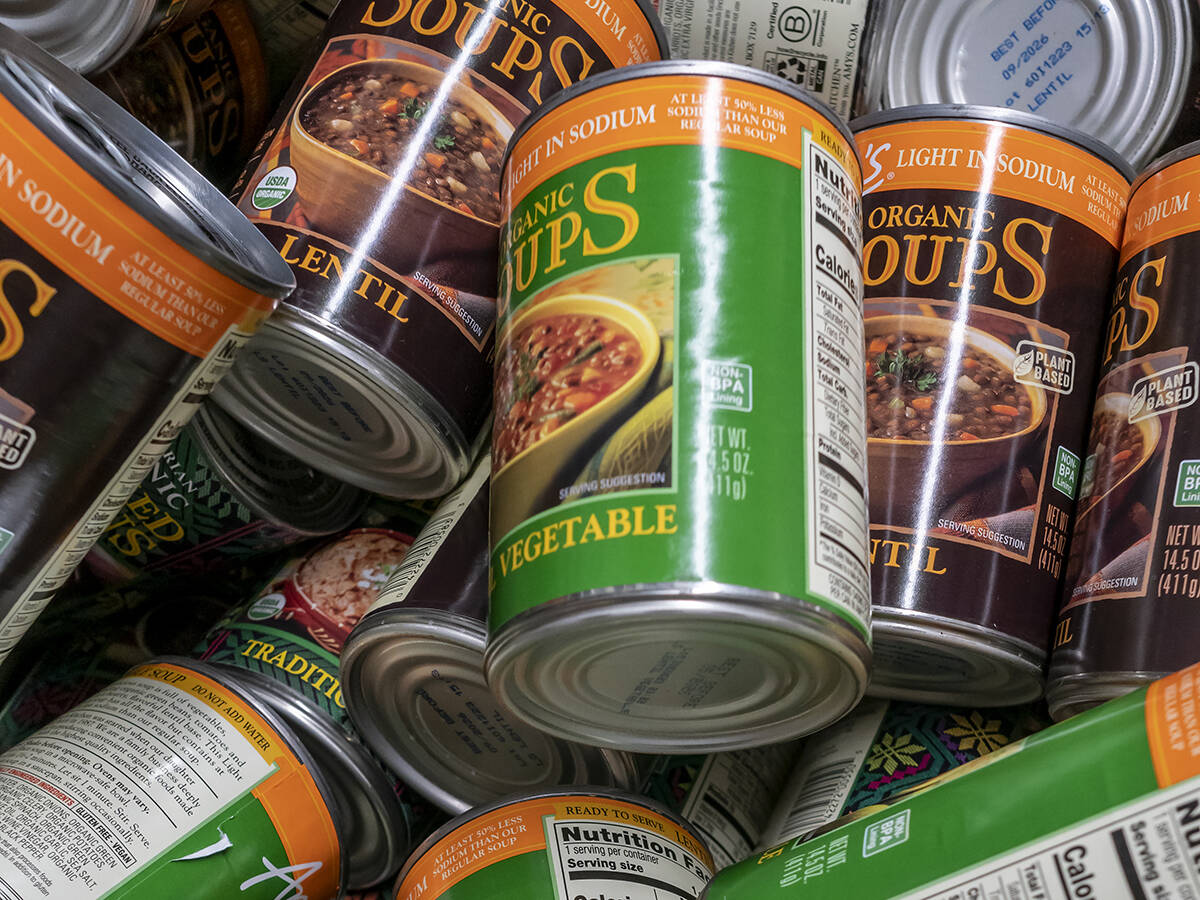The internet has opened the floodgates of dietary advice; how does that affect food production and should producers care?
Earlier this year, Kim Kardashian announced on social media her new role as “chief taste consultant” for the Beyond Meat company and her passion for its plant-based products, calling them “better for you and better for the planet.”
Kardashian is one of many celebrity influencers who have endorsed a vegetarian or vegan diet and products in the last decade. These influencers are making an impact.
In 2018, about half of all millennials in the United States reported to be interested in vegetarian or vegan diets. The trend was so strong that the Economist magazine declared 2019 the Year of the Vegan. And in the days following Kardashian’s Beyond Meat announcement, the company’s shares went up seven percent.
Read Also

Sustainable food has ‘lost all meaning’: prof
That marketing strategy is deader than a doornail, says a University of Guelph professor who specializes in consumer preferences and perceptions of agriculture and food.
It’s no wonder food companies are devoting significant amounts of their marketing budgets to influencer marketing. Globally, the influencer marketing industry was valued at US$16.4 billion for 2022.
It means that, in the past couple decades, sponsored celebrities have increasingly impacted our food choices and diets, a major factor in our overall health.
This may leave you wondering: are human beings more neurotic about food than before? Is this really how we are deciding what to eat?
A look at our relationship with food and diets in North America over the past couple centuries holds interesting insights.
First of all, human beings giving and receiving food advice — sometimes from eccentric characters — is not new. Diet advice dates back to Greek medical literature in the ancient world and fad diets have been around for more than 2,000 years.
According to historian and scholar Louise Foxcroft, the first celebrity “diet guru,” Luigi Cornaro, dates back to the 16th century. In 1558, Cornaro, an Italian entrepreneur and lover of food and drink, published a popular book about how a restricted diet at age 40 changed his life (his “restricted” diet still allowed for 14 ounces of wine a day).
In Canada, it was around the middle of the 19th century when nutrition became a field of its own. That was when we really saw concept of humans giving and receiving food advice grow in Canada, says Dr. Caroline Durand, associate professor at Trent University.
At that time, a group of mostly European scientists were working on describing chemical nutrients, coming up with theories around human nutrition and learning what balance of nutrients humans most needed in their diets.
“People were finding uses for this type of knowledge and starting to try to make that knowledge accessible to as many people as possible,” Durand says.
The late 19th century also saw the launch of the notable William Banting diet, which is often credited as the first low-carb diet, keto diet. Banting, an English undertaker who was formerly obese, promoted the diet that had improved his health: four meals a day of meat, fruit and vegetables and wine — no carbs or sugar allowed. The “Banting diet” became extremely popular and remained so for decades.
In the early 20th century in Canada, experts in the field of science, medicine and food began dispelling dietary advice, mostly on what to include or add into their diets and how to get sufficient quantities of certain elements, such as protein, Durand says.
In fact, the first vitamin was isolated in 1926, spurring decades of further research on isolating and synthesizing these compounds and what role they play in human health and launching what is today a $1 billion industry in Canada.
This is also around the time when we began to see a strong link between dietary messaging and childcare, Durand says.
“Women were the target of a lot of this advice because they were told that they needed to feed their children properly.”
The early 20th century also saw its share of notable fad diets. For example, in the early 1900s, American entrepreneur Horace Fletcher popularized a diet that required people to chew their food a minimum of 100 times, after which it would become liquidized and not cause weight gain. Fletcher is famous for other interesting reasons related to his diet, which can be found online.
By the middle of the 20th century, however, dietary advice in Canada began shifting away from adding things into our diets and toward taking things out, such as fat, sugar and salt, Durand says.
Following the Second World War, demographics in North America, economic conditions and lifestyle choices changed significantly, and relatedly so did Canadian diets. Obesity rates began to rise.
Combined with the growing amount of marketing around food and food products, people started becoming increasingly concerned with healthy eating and the link between diet, weight and overall health.
This was especially true for women, who remain disproportionately targeted by diet culture. In fact, although there is a strong pattern throughout human history of women being told to adhere to a certain weight and shape, it became a prominent marker of modern life in North America in the second half of the 20th century.
In 1978, U.S. psychotherapist Susie Orbach wrote: “In the United States, 50 percent of women were estimated to be overweight. Every woman’s magazine has a diet column. Diet doctors and clinics flourish. The names of diet foods are now part of our general vocabulary. Physical fitness and beauty are every woman’s goals. While this preoccupation with fat and food has become so common that we tend to take it for granted, being fat, feeling fat and the compulsion to overeat are, in fact, serious and painful experiences for the women involved.”
So, with people unhappy with their weight and obsessed with healthy eating, we saw the diet industry begin to really flourish mid-20th century. Dietary advice, once given mostly by doctors, scientists and some extreme personalities, was now increasingly coming from celebrities, marketers, large corporations and parties with vested interest in sales.
In recent decades, the internet and social media outlets have greatly amplified the amount of food and diet information we receive, and increased the number of people dispensing food advice.
Social media influencers are a force, with digital audiences in the millions. Many are capable of selling products and diets, making or breaking restaurants, and even starting social movements.
Vani Hari, known as the Food Babe, has used her large following and celebrity status to pressure companies such as Subway, Kraft and Kellogg’s into changing ingredients in their food products.
This is a positive development in some ways, but it has also led to a polarized environment around food and diets, as described by Bee Wilson, food writer and journalist.
“The nutrition world has split into vegans on the one hand and on the other, extreme low-carb meat gurus such as Jordan Peterson, who claims he cured his depression by eating nothing but beef,” she wrote in 2019.
Wilson argues that some diets or ways of eating have gained cult-like online followings, for example the concept of “clean eating,” which had 47.6 million posts under its hashtag on Instagram, at the time of writing.
“In many cases, clean eating was more than a diet; it was a belief system that propagated the idea that the way most people eat is not simply fattening, but impure,” Wilson wrote in 2019.
Author and scholar Alan Levinovitz goes further, arguing that the diets themselves have become modern versions of religion, incurring cult-like followings based on myths rather than scientific facts.
“Processed food is evil. Natural food is good. These are religious mantras, the condensed version of fairy tales that divide up foods, and the world, according to moralistic binaries,” he wrote in 2015.
This has led us to become anxious and dubious of our food and food products, and obsessed with diets that are not making us any healthier. Still, many people cling to these ideas nonetheless, due to an element of human psychology that economists refer to as the sunk cost fallacy.
“Once adopted, such practices become an important part of one’s identity and therefore hard to question or give up,” he writes.
This element of irrationality was summed up by U.S. author Michael Pollan in 2007.
“No people on Earth worry more about the health consequences of their food choices than we Americans. And no people suffer from as many diet-related problems. We are becoming a nation of orthorexics: people with an unhealthy obsession with healthy eating,” he wrote.
Today, poor diet remains the leading cause of death and disease throughout North America.
So, even though humans have long been giving and receiving dietary advice, social media has changed the playing field, providing an accessible global platform for information sharing and the ability to form communities around the topics of food, diet and health.
Will the digital diet culture, often based on unfounded premises and celebrity endorsements, affect the food production industry in Canada?
Probably not, says Andrew Watson, professor of history at the University of Saskatchewan who specializes in agriculture. In fact, it’s more the other way around.
In the past 50 years, political and policy changes to the Canadian agriculture industry — particularly those promoting open global markets and loss of domestic market protections and subsidies for farmers — have impacted the food production industry far more than any consumer diet trends.
“These things over time have contributed quite a bit to shaping what kind of food Canadians have access to,” Watson says.
He also believes that the army of millennials now choosing low- or no-meat diets believing them to be “better for you and better for the planet,” as per the recent Kardashian Beyond Meat endorsement, will remain a niche demographic.
“I’ve got a lot of respect for those people, but I don’t think they have much market clout,” he says. “They’re marginal and there are so many structural things in place right now that they’re working against.”
In fact, he says the idea of “voting with your wallet” will likely never be realistic.
“It’s almost impossible to imagine consumers being able to steer the ship, unless governments change their policy around food and agriculture more broadly.”
That means for the time being, it’s safe to say farmers can enjoy the spectacle of online food marketing without too much worry.
But it might not be a bad idea to consider investing industry funds into digital influencer marketing and staking a claim in the digital conversation because history shows that our diet obsession probably isn’t going away.















